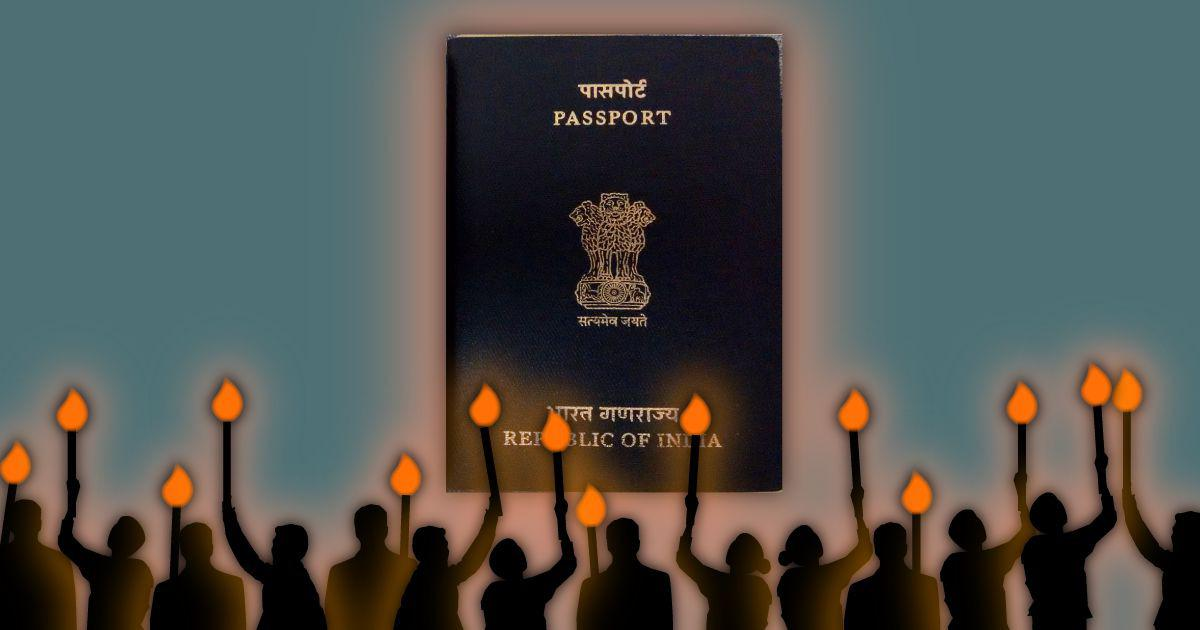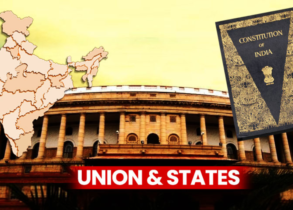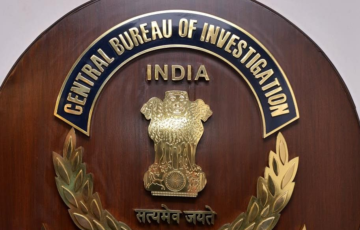CITIZENSHIP
Introduction
- Citizenship is a fundamental concept that lies at the heart of a nation’s identity and governance. It defines an individual’s legal and political status within a specific country or state, granting them both rights and responsibilities. In essence, citizenship represents a social contract between the individual and the state, outlining the reciprocal obligations that come with being a member of a particular community. It encompasses a wide range of aspects, including legal rights, civic duties, cultural affiliations, and a sense of belonging. Citizenship plays a crucial role in shaping the rights and responsibilities of individuals in society and serves as a cornerstone of democratic governance and social cohesion. This introductory framework sets the stage for exploring the multifaceted dimensions of citizenship, its significance, and its evolving nature in a globalized world.
Meaning
- Citizenship, as defined by the Indian Constitution, holds profound meaning and significance in the context of India’s democratic and diverse society. It encompasses both legal rights and civic responsibilities, and it is essential to understand its importance in the Indian constitutional framework.
- Meaning of Citizenship in the Indian Constitution:
- Legal Status: Indian citizenship is the legal status granted to individuals who are recognized as members of the Indian state. It confers upon them certain legal rights, including the right to vote, right to equality before the law, and the right to freedom of speech and expression.
- Membership in the Political Community: Citizenship signifies an individual’s membership in the political community of India. It grants them the privilege of participating in the democratic process by voting in elections and standing for public office.
- Protection of Rights: Citizenship ensures the protection of fundamental rights guaranteed by the Constitution. These rights include the right to life and personal liberty, right to equality, right to religious freedom, and various other civil and political rights.
- Civic Responsibilities: Alongside rights, citizenship also entails civic responsibilities. Citizens are expected to abide by the law, pay taxes, and perform duties such as participating in jury duty when called upon.
- Sense of Belonging: Citizenship fosters a sense of belonging and identity with the nation. It transcends linguistic, religious, regional, and cultural diversities, creating a shared bond among citizens.
| Evolution of the Concept of Citizenship |
|
Significance
- Democratic Governance: Citizenship is at the core of India’s democratic governance. Citizens elect their representatives to the legislature and play a pivotal role in shaping the country’s policies and leadership through free and fair elections.
- Equality and Justice: Citizenship ensures equality before the law and prohibits discrimination on grounds of religion, race, caste, sex, or place of birth. It is a key tool for achieving social justice and addressing historical inequalities.
- Preservation of Pluralism: India is a diverse nation with various languages, religions, and cultures. Citizenship helps preserve this pluralism by acknowledging the equal rights and dignity of all citizens regardless of their background.
- Secularism: The Indian Constitution enshrines secularism as one of its core principles. Citizenship upholds this principle by ensuring that individuals have the right to practice and propagate their religion freely without any interference from the state.
- Protection of Rights: Citizenship serves as a shield for the protection of individual rights. It empowers citizens to seek legal remedies if their rights are violated and holds the government accountable for safeguarding these rights.
- National Identity: Citizenship reinforces the idea of a united Indian identity while respecting the diversity within the country. It creates a shared sense of responsibility towards the nation’s progress and well-being.
Constitutional Provision
- The Indian Constitution addresses the concept of citizenship in Articles 5 to 11 of Part II. However, it does not establish permanent or comprehensive provisions on this matter. Instead, it delegates the authority to the Indian Parliament to enact laws concerning citizenship, which led to the creation of the Citizenship Act of 1955. Here’s a breakdown of the key points regarding citizenship in India, as outlined in the provided information:
- Categories of Citizenship at the Constitution’s Commencement (January 26, 1950):
- Individuals who had a domicile in India and met specific criteria, such as being born in India, having parents born in India, or residing in India for at least five years before the Constitution’s commencement, automatically became Indian citizens.
- Those who migrated to India from Pakistan were eligible for Indian citizenship if they, their parents, or grandparents were born in undivided India. The eligibility criteria varied based on the date of their migration.
- Citizenship for Returning Emigrants:
- Individuals who had previously migrated to Pakistan from India but later returned to India for resettlement were eligible to acquire Indian citizenship.
- Citizenship for Persons of Indian Origin Residing Abroad:
- Individuals of Indian origin residing outside India could become Indian citizens if they were registered as such by an Indian diplomatic or consular representative in their country of residence.
- Prohibition of Dual Citizenship:
- The Indian Constitution explicitly prohibits individuals from holding dual citizenship, meaning they cannot voluntarily acquire the citizenship of any foreign nation.
- Continuity of Indian Citizenship:
- Any person who is considered or deemed to be an Indian citizen would retain this status unless otherwise specified by laws passed by the Indian Parliament.
- Parliamentary Authority over Citizenship Matters:
- The Indian Parliament has the power to make and regulate provisions related to the acquisition, termination, and other aspects of citizenship.
Citizenship Act of 1955
- The Citizenship Act of 1955 is an important piece of legislation in India that governs matters related to Indian citizenship. The Act was enacted by the Indian Parliament and has undergone several amendments over the years to reflect changes in citizenship rules and regulations.
Key Provisions of the Citizenship Act, 1955:
Categories of Citizenship:
- The Citizenship Act classifies individuals into several categories, including citizens by birth, citizens by descent, citizens by registration, and citizens by naturalization. Each category has specific criteria and conditions.
Citizenship by Birth:
- Under this provision, a person born in India on or after January 26, 1950, and before July 1, 1987, is considered an Indian citizen by birth if one of their parents is an Indian citizen at the time of their birth.
- For individuals born on or after July 1, 1987, both parents must be Indian citizens for the child to acquire citizenship by birth.
Citizenship by Descent:
- Individuals born outside India to at least one Indian citizen parent can acquire Indian citizenship by descent. However, there are specific conditions regarding the parent’s citizenship and the registration of the birth.
Citizenship by Registration:
- This provision allows certain categories of people, such as persons of Indian origin residing abroad, to apply for Indian citizenship through a registration process.
- Conditions for registration may include a minimum period of residency in India or other qualifications specified by the government.
Citizenship by Naturalization:
- Foreign nationals who have resided in India for a specific period of time and meet the eligibility criteria can apply for Indian citizenship through naturalization.
- Naturalization applicants are typically required to have a continuous residency in India for 12 years. However, this period may be reduced for certain categories of applicants, such as spouses of Indian citizens.
Renunciation of Citizenship:
- The Citizenship Act allows Indian citizens to voluntarily renounce their Indian citizenship. This process involves formal application and approval by the government.
- Once citizenship is renounced and the application is accepted, the individual ceases to be an Indian citizen.
Termination of Citizenship:
- Indian citizenship can be terminated in certain circumstances, such as when an individual voluntarily acquires the citizenship of another country or engages in activities that are considered detrimental to the sovereignty and integrity of India.
Dual Citizenship Prohibition:
- The Citizenship Act expressly prohibits dual citizenship. Indian citizens who voluntarily acquire the citizenship of another country automatically lose their Indian citizenship.
Overseas Citizens of India (OCI):
- Through amendments to the Act, the concept of Overseas Citizens of India (OCI) was introduced. OCI status grants individuals of Indian origin certain privileges and benefits, but it does not confer full Indian citizenship.
- OCI cardholders enjoy benefits such as visa-free travel to India, the ability to own property, and access to some economic rights.
- Authority to Make Rules:
- The Act empowers the Indian government to create rules and regulations governing citizenship matters. These rules may specify additional conditions, procedures, or requirements related to citizenship acquisition, renunciation, or other matters.
Single Citizenship
- While the Indian Constitution adopts a federal structure, recognizing the coexistence of the Union and individual states, it uniquely establishes a system of single citizenship at the national level. In essence, every Indian citizen owes allegiance solely to the Union, and there is no concept of distinct state citizenship within India. This stands in contrast to countries such as the United States and Switzerland, which adopt a dual citizenship system.
- Dual Citizenship vs. Single Citizenship:
- In the United States, for example, individuals are not only citizens of the United States at the federal level but also of the specific state in which they reside. This dual citizenship framework can lead to complexities, as citizens enjoy dual sets of rights—one granted by the national government and the other by their respective state governments. However, it also introduces the potential for discrimination, as states may favor their own citizens in various matters, including voting rights, public office eligibility, and professional practice.
- The Benefits of Single Citizenship in India:
- In contrast, India’s single citizenship model fosters unity and mitigates discrimination. Regardless of the state of birth or residence, all Indian citizens enjoy identical political and civil rights nationwide. This ensures that there is no discrimination based on regional affiliations.
- Exceptions to the Rule:
- Residence Conditions for Employment: Under Article 16 of the Constitution, Parliament may prescribe residence within a state or union territory as a condition for specific employments or appointments within that state or union territory. However, this provision has limited application, and few states have enacted such laws.
- Non-Discrimination on Specific Grounds: Article 15 of the Constitution prohibits discrimination against citizens on grounds of religion, race, caste, sex, or place of birth. However, it does not cover discrimination based on residence. States have the authority to provide special benefits or preferences to their residents in matters not covered by the Constitution’s rights for Indian citizens. For instance, a state may offer fee concessions for education to its residents.
- Protection of Tribal Interests: Article 19, which guarantees the freedom of movement and residence, includes provisions for the protection of the interests of scheduled tribes. This allows restrictions on the right of outsiders to enter, reside, and settle in tribal areas. Such measures aim to preserve the distinct culture, language, customs, and traditions of scheduled tribes.
- Special Provisions for Jammu and Kashmir: Until 2019, the former state of Jammu and Kashmir had unique powers under Article 35-A of the Constitution. This provision allowed the state legislature to define permanent residents and grant them special rights and privileges in areas such as employment, property acquisition, settlement, scholarships, and government aid. However, this special status was revoked in 2019, ending these provisions.
- The Quest for Unity:
- The Indian Constitution, inspired by the Canadian model, establishes single citizenship to promote unity, fraternity, and integration among the diverse people of India. Despite these constitutional ideals, India has faced challenges such as communal conflicts, class tensions, caste disparities, linguistic divisions, and ethnic disputes. Realizing the founders’ vision of a united and integrated Indian nation remains an ongoing endeavor.
Overseas Citizenship of India (OCI)
- Overseas Citizenship of India (OCI) is a special status and category of travel and residency available to individuals of Indian origin or Indian diaspora who are foreign citizens but have a strong connection to India. OCI status was introduced to provide certain privileges and benefits to this group of individuals while allowing them to maintain their foreign citizenship.
Key Features of OCI:
- Eligibility: OCI is primarily available to the following categories of individuals:
- People of Indian origin who were citizens of India on or after January 26, 1950.
- Individuals who were eligible to become citizens of India on or after January 26, 1950, but chose not to acquire Indian citizenship.
- Minor children and descendants of individuals who are eligible for OCI.
- Rights and Privileges: OCI status provides certain privileges to individuals, including:
- Multiple-entry, multi-purpose lifelong visa to visit India.
- Exemption from reporting to the local police authorities for stays in India lasting less than 180 days.
- The ability to own immovable property in India except for agricultural and plantation properties.
- Parity with non-resident Indians (NRIs) in financial, economic, and educational fields, except for specific restrictions.
- Exemptions and Restrictions: While OCI status offers various benefits, it also has certain limitations. OCI cardholders are not entitled to:
- Voting rights in India.
- Holding certain government offices or positions.
- Acquisition of agricultural or plantation properties in India.
- Parity with Indian citizens for certain educational and professional qualifications.
- OCI Card: Individuals who are eligible for OCI are issued an OCI card, which serves as proof of their status. The card must be carried when traveling to India and can be renewed upon reaching a certain age.
- Renunciation and Surrender: OCI cardholders can choose to renounce or surrender their OCI status if they wish to do so. Renunciation involves giving up OCI status entirely, while surrender allows individuals to return to the Indian citizenship they were eligible for but chose not to acquire.
- Revocation: The Indian government may revoke OCI status in certain circumstances, such as if the cardholder violates Indian laws or national security interests.
- Application Process: The process for obtaining OCI status involves submitting an application to the Indian embassy or consulate in the country of residence, along with required documentation and fees.
- Changes in OCI Rules: The rules and regulations related to OCI status may change over time, so it’s important for OCI cardholders to stay updated on any revisions in eligibility criteria or benefits.
- The OCI status was introduced to foster a stronger connection between the Indian diaspora and India, allowing individuals of Indian origin to have easier access to their ancestral homeland while retaining their foreign citizenship. It has proven particularly beneficial for people who wish to visit India frequently for family, business, or cultural reasons. However, it’s essential for OCI cardholders to understand the rights and limitations associated with their status and to comply with relevant regulations to maintain their OCI privileges.
Data with reference to the Overseas Citizenship of India (OCI) scheme:
Top countries of residence of OCI cardholders: The top countries of residence of OCI cardholders are:
Top age groups of OCI cardholders: The top age groups of OCI cardholders are:
Gender distribution of OCI cardholders: The gender distribution of OCI cardholders is approximately 55% male and 45% female. The OCI scheme is a popular scheme among people of Indian origin who live abroad. It provides them with a number of benefits, including the right to live and work in India indefinitely, and the right to purchase property in India. The data shows that the OCI scheme is particularly popular among young people and people who live in developed countries. Some additional data on the OCI scheme from the Indian Ministry of Home Affairs:
The data shows that the number of OCI applications received and approved has increased significantly in recent years. This suggests that the OCI scheme is becoming increasingly popular among people of Indian origin who live abroad. |
Comparing NRI, PIO and OCI Cardholder
| Aspect | Non-Resident Indian (NRI) | Person of Indian Origin (PIO) | Overseas Citizen of India (OCI) |
| Definition | Indian citizens living abroad | Individuals of Indian origin | Foreign citizens with Indian ties |
| Citizenship | Indian citizens | Foreign citizens | Foreign citizens |
| Voting Rights | Yes | No | No |
| Lifelong Visa | N/A | N/A | Yes |
| Exemption from Police Reporting | N/A | N/A | Yes (for stays < 180 days) |
| Property Ownership in India | Yes | Yes | Yes (except agricultural land) |
| Investment in India | Yes | Yes | Yes |
| Holding Government Offices | Yes | No | No |
| File Income Tax in India | Yes | No | No |
| Educational and Professional Parity | N/A | N/A | Yes (in most cases) |
| Nationality | Indian citizens | Foreign citizens | Foreign citizens |
| Articles Related to Citizenship |
|
UPSC PREVIOUS YEAR QUESTION
1. With reference to India, consider the following statements: (2021)
1. There is only one citizenship and one domicile.
2. A citizen by birth only can become the Head of State.
3. A foreigner once granted citizenship cannot be deprived of it under any circumstances.
Which of the statements given above is/are correct?
(a) 1 only
(b) 2 only
(c) 1 and 3
(d) 2 and 3













